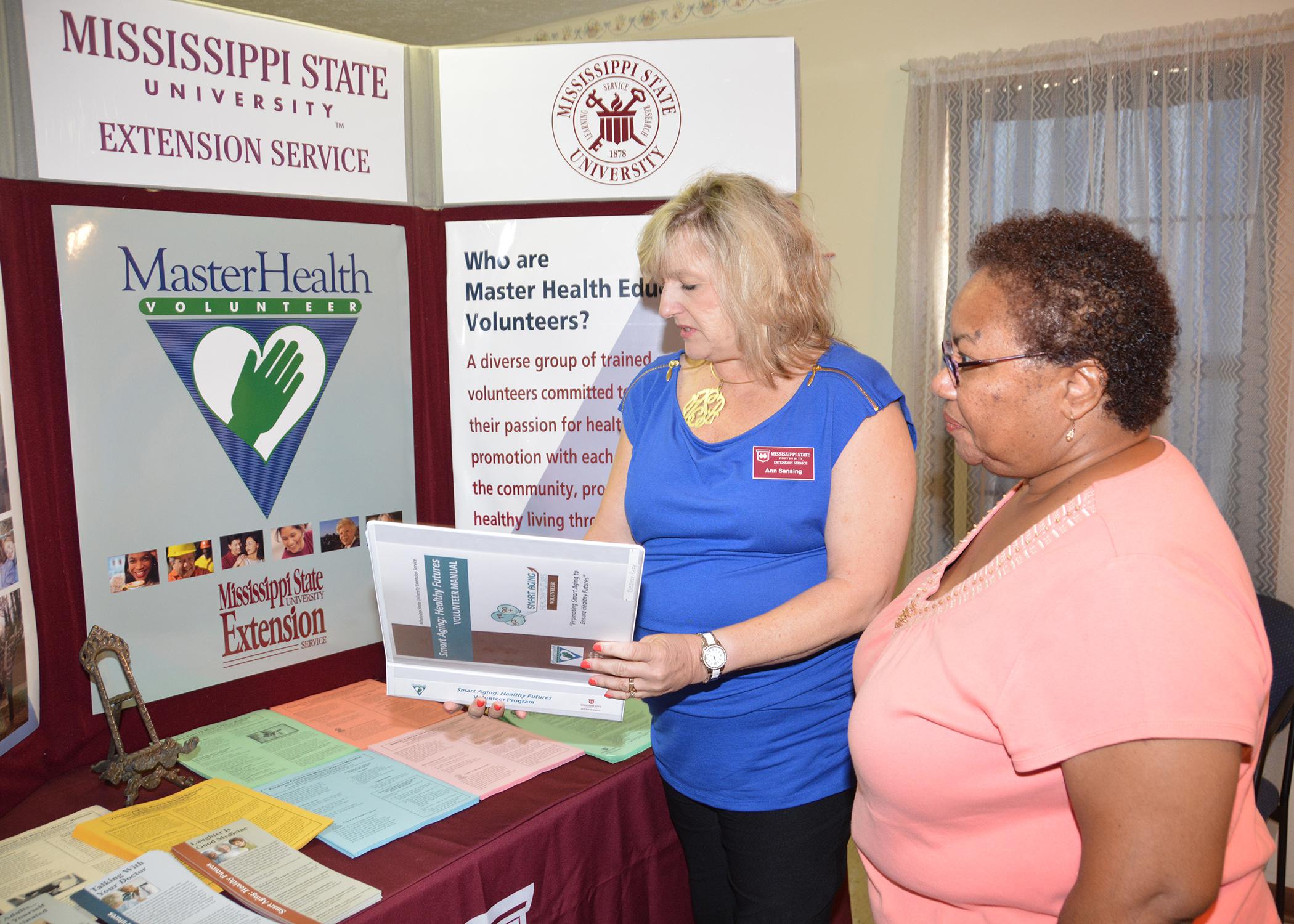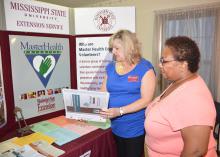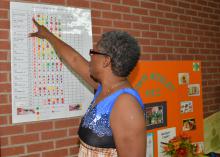Information Possibly Outdated
The information presented on this page was originally released on July 31, 2014. It may not be outdated, but please search our site for more current information. If you plan to quote or reference this information in a publication, please check with the Extension specialist or author before proceeding.
Obesity battle remains too big to fight alone
DURANT -- A group project in Holmes County is one small town’s effort to end Mississippi’s national reign as the leader in obesity.
Detra Bishop, pastor of the John Wesley United Methodist Church in Durant, just marked the first anniversary of her church’s Health Education Center. She started the center in March 2013, involving people from other churches and a variety of contributing organizations.
“It takes time to build relationships. We are leveraging existing resources from schools, churches and government that are available at no cost,” she said. “We want the center to be a grassroots, sustainable movement across the state and beyond.”
Bishop is partnering with the Mississippi State University Extension Service, Rust College in Holly Springs, the United Methodist Church and others for a variety of needs. Together, they are addressing unhealthy diets and sedentary lifestyles in the community.
“Everything we need is right here,” she said.
At the first anniversary celebration on July 25, representatives from the MSU Extension Service pledged support.
“Extension’s role is to provide education. We are ready to help this community make healthy choices,” said Tara Howell, Holmes County Extension agent.
Ann Sansing, the MSU Extension community health coordinator, leads the Master Health Education Volunteer Program. She reviewed the impact Extension health volunteers could offer on self-care, Alzheimer’s disease, vision care, breast cancer, prostate cancer and colorectal cancer. Additional lessons incorporate issues related to financial health and mental health.
“Master Health Education Volunteers receive training in six health topics and then provide 20 hours of health education and service back to their community,” Sansing said. “We want to help make this health movement sustainable and see it grow into other communities across the state.”
Agnes Redmond, director of the church’s health center, finds encouragement from her own weight loss since the program started. Despite having rheumatoid arthritis, she has lost 30 pounds in one year by eating healthier and increasing her physical activities.
“Many of us were just growing old in our houses, but this health program has gotten us out,” Redmond said. “It gives us something to do, and sometimes, it’s something for us to do for our community.”
Redmond pointed to a recent citywide effort to organize a trash pickup and health screenings. The event encouraged walking and cleaning up the town. Participants in the Health Education Center provided blood pressure and glucose screenings.
Redmond said the center typically has 17 to 20 people each week, meeting on Tuesdays and Thursdays. Most are women between 50 and 80 years of age.
“Our meetings begin with spiritual aspects, and then they turn to the physical and emotional needs of the members,” she said.
Representing Rust College, Charles Williams said the time has come for every institution to work toward healthier lifestyles.
“If you can keep this Health Education Center going, people will join you, but first, you have to be committed,” he said. “We don’t need networks, we need partnerships and collaboration.”
Williams said the college has initiated several projects to address health inequities and social justice issues. He is director of the Roy Wilkins and Earnest A. Smith Institute for Health Equity and Social Justice at Rust College, which is a historically black, liberal arts college that is associated with the United Methodist Church.
“Rust has been trying to educate our people, but now we need to save our people from poor health choices,” he said. “God created us, made us a temple, and we are doing all we can to destroy it.”
Frido Kinkolenge also spoke about the connection with social justice issues and poor health options. He is a social justice intern with the General Board of Church and Society of the United Methodist Church based in Washington, D.C.
“Our children are involved in things that will impact the health of the community,” he said. “When the community is healthy, the people are restored to the image of God.”
David Buys, Extension health specialist, described the center as a great opportunity to take Extension resources into a community.
“We can use state and county Extension staff to infuse knowledge into the core group involved in the Health Education Center, who then will provide educational material that can make an immediate and meaningful impact on the health of their community,” Buys said. “The ripple effect will spread the information beyond what any group alone could reach.”
The John Wesley Health Education Center is located at 49 South Lexington St. in Durant. The groups meet from noon until 4 p.m. on Tuesdays and Thursdays.






